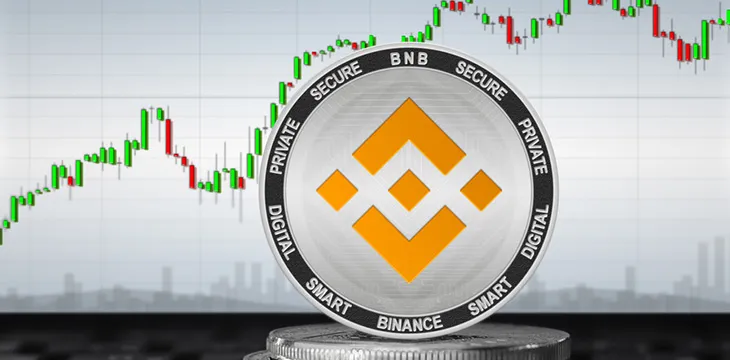|
Getting your Trinity Audio player ready...
|
The eternal problem for shady crypto asset companies is this: no reputable financial firm wants to bank them. Consequently, they are forced to flip from one shady company to another as each successive partner either cut ties or is dismantled by law enforcement authorities on their own.
The companies that do this aren’t just small-time bucket shops: they’re often the biggest outfits in the industry. Just this week, Binance (and apparently some as-yet-undetermined number of other clients) was cut off from its U.S. banking partner, Signature Bank, amidst reports that Binance clients could not withdraw their funds from the platform.
Before this latest incident, an offshore Panamanian company called Crypto Capital Corp was busted for fraud and money laundering, with U.S. authorities seizing nearly a billion dollars worth of funds it was holding for a glut of digital asset clients. Crypto Capital had become the payment processor of last resort for digital asset companies that couldn’t convince any reputable company to bank them. Most notable among its clients was Bitfinex/Tether, which was probed by the New York Attorney General in 2020 and 2021 because of their relationship with Crypto Capital. That probe revealed that Bitfinex had entrusted almost a billion dollars of funds to Crypto Capital—and predictably, the entire amount was eventually seized by U.S. authorities over money laundering. Crypto Capital’s executive team was indicted (Reggie Fowler, once a co-owner of the Minnesota Vikings, pleaded guilty to multiple charges of fraud and now awaits sentencing; two other executives are on the run), and most importantly, the company’s crypto clients were left with a gaping hole where their client’s funds used to be.
This alone gives Crypto Capital a place in digital asset history because the New York Attorney General’s investigation discovered that Tether used its ‘reserves’ to help Bitfinex plug this hole, proving what Tether had long been accused of and that its so-called stablecoin is not fully backed by reserves (which is itself a massive problem).
Signature’s decision to pull back from the chaos of the digital asset industry won’t stop the likes of Binance from finding another bedfellow, just as the Crypto Capital disaster didn’t stop Kraken and Tether/Bitfinex. The only question is which disreputable company is next up to the plate.
Advcash a nexus for Binance’s questionable ties to Russia
Independent journalist, Dirty Bubble Media has an idea: Advanced Cash Limited (Advcash), which services clients like Binance, Huobi, OKX, and Nexo. A little digging reveals that Advcash is exactly what you’d expect as a landing spot for digital asset companies that can’t get banked by anyone else.
Just like Crypto Capital and others before it, Advcash’s actual operations are opaque. The company is supposedly registered in Belize, but uses a shell business address shared with many other entities (not a particularly rare practice by itself).
Today, Advcash is used by Binance and its other clients to facilitate the deposit and withdrawal of other fiat, including USD, to and from the exchange.
Advcash’s list of apparent clients tells a story: Binance and Kraken are currently facing an unprecedented competition class action in the U.K. over their collusion in delisting BSV. OKX was fined for operating illegally in China and ‘unknowingly’ facilitating money laundering on its platform. Huobi has been chased out of several jurisdictions around the globe: its license to operate in Thailand was revoked by Thai authorities over ‘irreparable’ regulatory breaches and was put on the Malaysian Securities Commission Investor Alert List after it was deemed to be operating in that country illegally, among other scandals.
However, Advcash was initially engaged by Binance in 2018 to serve the Russian market, providing a pathway for users to deposit and withdraw roubles via Binance. The move turned out to be extraordinarily prescient, as Binance was the overwhelming exchange of choice for Russian digital asset users as of 2019 and swelled four-fold following Russia’s invasion of Ukraine and the sanctions that Russia was subsequently subjected to.
Binance’s activities in Russia are particularly interesting because Reuters’ investigations into the company revealed that Binance has ties with a Russian financial intelligence agency that apparently operates as an arm of the more-infamous FSB. According to Reuters, Binance agreed to hand over client data to the agency, which requested the information in an effort to trace millions of dollars worth of digital assets donated to Putin’s political rival Alex Navalny.
Binance’s ties to Russia were again brought to the fore last week when the U.S. Justice Department charged the Russian co-founder of Bitzlato with operating an unlicensed money exchange business that processed $700 million in criminal funds. According to global money-laundering watchdog FinCEN, Binance was one of the top three digital asset counterparties for Bitzlato. Reuters’ reporting revealed that Binance moved $345.8 million in BTC for the company since May 2018.
Things get more interesting when you look at Advcash’s management: the CEO is Yaacov Bitton, who held jobs at payday loan companies and cheque-cashing businesses before starting Advcash in 2011. He was also on the board of advisors to Native Video Box, one of the many fraudulent ICOs in 2018 that raised millions from investors before disappearing with the cash and failing to deliver on any of their promises.
Advcash is also partnered with another Russian digital assets payment firm called Mercuryo. Mercuryo is led by similarly shady characters: both founders are Russian alumni of the Native Video Box scam. Their clients are largely the same as Advcash, Binance and Bitfinex included.
Advcash’s publicly offered products similarly raise eyebrows. One service listed on its website gives customers Advcash-provided IBAN numbers to obscure payments made ‘to/from exchanges that your bank doesn’t like.’
Further, Advcash also has its wallet service with a linked lending product, which is offered in partnership with Nexo. If you missed it, Nexo was fined $45 million after the SEC deemed its lending program an illegal securities offering. Nexo’s Bulgarian offices were also recently raided “as part of an international investigation into money laundering and sanctions evasion by Russian parties,” according to Dirty Bubble Media.
Predictably, none of this will matter to Binance. In addition to their booming Russia business, Binance themselves were revealed to have facilitated almost $8 billion worth of crypto asset transactions originating from Iran, which is under U.S. sanctions.
Binance’s use of a company like Advcash is perhaps a testament to a rapidly drying reservoir of legitimate counterparties available to the Binance’s of the world. But it will also act as a garnish to an avalanche of revelations about Binance’s approach to compliance over the past year. The Reuters investigation into Binance revealed a concerted effort to lie to regulators and intentionally suppress its own anti-money laundering and other compliance efforts to rush more investors into the casino while the going was good. In the wake of the FTX collapse, the going is most certainly not good any longer, and law enforcement agencies are clamping down on rampant malfeasance in the industry.
So, legitimate options for Binance are likely only to shrink further, and the more that comes out about Binance, the more it seems like law enforcement action is right around the corner.
Read the full Dirty Bubble Media report here.
Follow CoinGeek’s Crypto Crime Cartel series, which delves into the stream of groups—from BitMEX to Binance, Bitcoin.com, Blockstream, ShapeShift, Coinbase, Ripple, Ethereum, FTX and Tether—who have co-opted the digital asset revolution and turned the industry into a minefield for naïve (and even experienced) players in the market.

 04-19-2025
04-19-2025 





